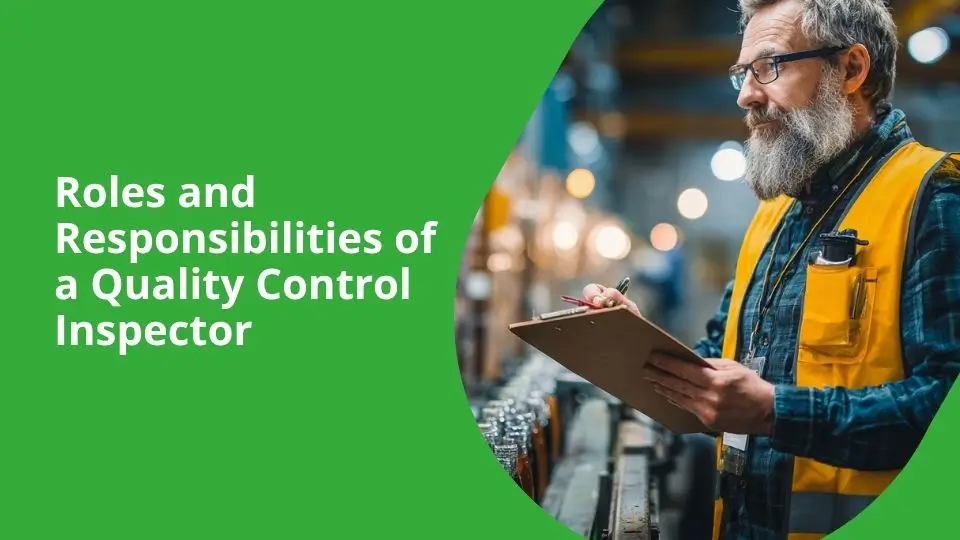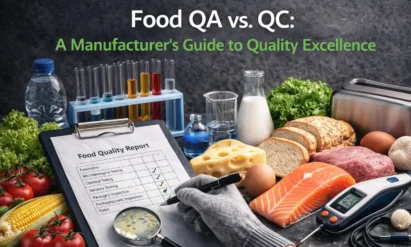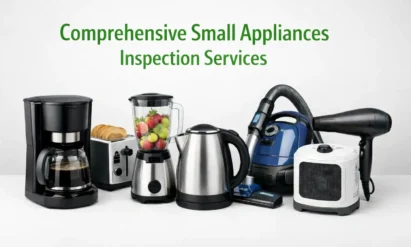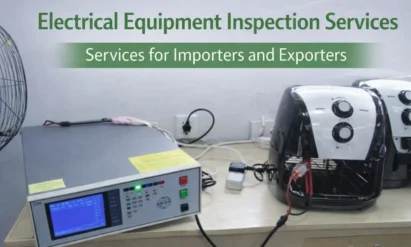Roles and Responsibilities of a Quality Control Inspector
Aug 11,2025
When you source products overseas, there’s always a degree of uncertainty. You trust suppliers thousands of miles away to produce products that match your orders. This is where quality control (QC) inspectors come in—bridging the gap between buyers’ expectations and factory realities.
In today’s global trade landscape, QC inspectors, especially independent third-party inspectors, are your eyes and ears on the ground. They help you detect problems early, avoid costly mistakes, and maintain consistent product quality.
In this article, we’ll explore their actual work, the different roles they play in the inspection process, why hiring a professional third-party is crucial, the skills they require, and the industries that rely most on this role.
What Does a Quality Control Inspector Do?
A quality inspector’s core responsibility is to verify that your products are well-made—but their work goes far beyond superficial inspections.
Their inspections cover a wide range of aspects, including product functionality, appearance, materials, dimensions, weight, labeling, packaging, barcode accuracy, safety features, and compliance with your country’s regulations.
Depending on your requirements, a quality inspector may also verify quantity, test product performance, or assess handling and loading conditions.
Let’s say you’ve ordered 2,000 cookware sets. A quality inspector might randomly open cartons, take samples, and measure each component with calipers.
They’ll check that the cutlery is evenly polished, that the packaging matches your drawings, and that fragile parts are protected during shipping. If the factory applies incorrect labeling or uses inconsistent materials, this information will be documented with photos, notes, and objective recommendations.
All of this is compiled into a report, helping you decide whether to approve shipment, request rework, or reject the goods. In short, inspectors give you visibility and control, even if you’re halfway around the world.
Types of Quality Control Inspectors
In third-party inspection services, the inspector’s duties vary depending on the stage of production. Some inspectors are involved before production begins, reviewing raw materials and components to ensure they meet expectations. This is often referred to as incoming quality control (IQC).
Other inspectors work during the production process, known as in-process quality control (IPQC). Their job is to monitor the production process, identify early issues, and ensure that procedures are being followed correctly.
After production is complete, the final quality control (FQC) team steps in. They inspect the finished product to ensure that everything meets the buyer’s specifications.
This work sometimes overlaps with pre-shipment inspection (PSI), which focuses on the product’s readiness for shipment, the accuracy of packaging, and the condition of the goods being loaded. Each inspection point provides an added layer of security for buyers, helping to reduce surprises and quality disputes.
Why Work With an Independent Third-Party Inspector?
While some suppliers have in-house quality control teams, relying solely on factory-provided inspections can be risky. Independent inspectors can objectively and impartially assess the entire process, giving buyers a clearer and more reliable understanding of actual product quality.
One of the greatest advantages of independent inspectors is their objectivity. Third-party inspectors don’t report to the factory, meaning they’re unburdened by internal pressures and more likely to accurately report issues.
This is especially important when buyers can’t visit the factory in person. A reliable inspection report can mean the difference between a smooth shipment and a troublesome one.
Another reason to work with independent inspectors is their familiarity with international quality standards and local manufacturing regulations.
Good inspectors understand the expectations of overseas customers and know how to assess whether a product meets specific market requirements. They’re also professionally trained to communicate clearly, identify inconsistencies, and prevent issues from escalating.
Third-party inspections also provide useful documentation. You’ll receive a report containing clear descriptions, images, defect analysis, and conclusions based on the inspection findings. These reports not only aid decision-making but also serve as a record in the event of future disputes.
Essential Skills for Quality Control Inspectors
Not just anyone can become a reliable quality control inspector. The role requires technical knowledge, real-world experience, and good communication skills. A key part of the job is attention to detail.
Inspectors need to catch subtle defects that might not be obvious at first glance — from incorrect colors and loose stitches to poorly printed barcodes or wrong material usage.
They also need hands-on technical ability. Measuring product dimensions, checking weights, and verifying performance often requires the use of professional tools like calipers, pull gauges, and barcode scanners. Understanding how to use this equipment properly ensures inspections are accurate and repeatable.
Communication plays a major role as well. Inspectors must document their findings clearly and explain them in ways both clients and factory staff can understand. This includes taking well-structured photos, writing logical summaries, and offering recommendations when needed.
And perhaps most importantly, a good inspector needs strong personal integrity. The value of third-party inspection lies in its impartiality. An inspector must be honest, even if it means reporting findings that could delay shipment or upset a factory. Their responsibility is to the truth — and to the buyer’s best interest.
Industries That Rely on QC Inspectors
Quality control services are essential across a wide variety of industries, each with its own set of challenges and quality standards.
In consumer goods, for example, QC inspections help ensure that items like clothing, toys, and kitchenware meet buyer expectations and safety standards. Even small defects — such as poor stitching or incorrect packaging — can result in costly returns or customer complaints.
In the electronics sector, inspectors verify not only appearance and labeling but also product functionality, safety, and performance under real-world conditions.
In the case of battery-operated items or smart devices, this can mean dozens of tests to confirm that the product is both reliable and compliant with regulatory standards.
Furniture and home décor products also demand close inspection. Items made of wood or metal need to be checked for structure, finishing quality, and moisture content. Packaging is also critical in this sector, since products are often bulky and vulnerable during transport.
In the field of tools and industrial goods, inspectors check not only for visual flaws but also for critical technical factors such as measurement tolerance, welding consistency, and assembly safety.
And for disposable goods or food-related packaging, inspections help verify hygiene conditions, sealing integrity, and compliance with health regulations.
Conclusion
Quality control inspectors are more than just a checkpoint before shipping — they are a vital link between buyers and manufacturers. Their role is to make sure that what arrives at the destination is what was promised at the beginning.
Through detailed checks, real-time observations, and objective reports, third-party inspectors help businesses reduce risk, avoid delays, and maintain strong supplier relationships.
In today’s fast-moving global supply chains, having an independent professional at the production site can mean the difference between a successful delivery and a costly mistake.
Whether you’re shipping home goods, electronics, apparel, or tools, investing in third-party quality control isn’t just smart — it’s essential to long-term success and brand reputation.
--- END ---
Products
Get A Free Quote
Related Blogs
QCC SAMPLE REPORT
For sample reports or custom checklists, please contact us – we're here to assist you.



 December 31,2025
December 31,2025

